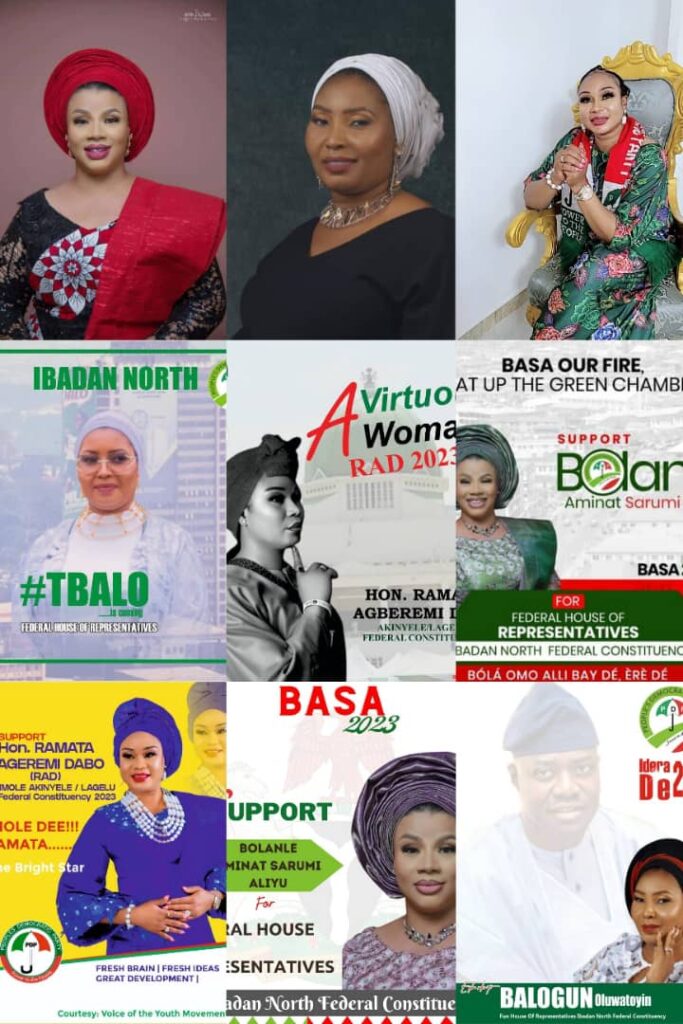Comrade Lekan Badmus is a columnist with ODUDUWA NEWS and a public opinion analyst based in Ibadan.

Nigeria has been recording low participation of women in both elective and appointive positions. This is a growing
concern to many Nigerians despite the declaration made at the
4th World Conference on women in Beijing which advocated 30% affirmative action.In Nigeria, the
National Gender Policy (NGP) recommended 35% affirmative action instead and sought for a more inclusive
representation of women. The under representation of women in political participation gained root due to the patriarchal practice inherent in our society; much of which were obvious from pre-colonial era till date.
With over two decades of uninterrupted democratic governance, it is instructive to note that
Nigeria is yet to produce a female governor in any of the 36 states of the Federation.

Without any equivocation, Nigeria is blessed with numerous intelligent women who have made remarkable progress in many professions but with politics as an exemption.
From Efunroye Tinubu to Funmilayo Kuti, Alele Williams to Okonjo-Iweala, it could be seen that Nigerian women are of substances. Indeed, around the world, women have been conspicuous by their presence in decision and policy making in government. Very few have had the opportunity and were exemplary. Margaret Thatcher, Hillary Clinton, Sirleaf Johnson and Condloeza Rice are some of the women that have proved that what a man can do, a woman has the wherewithal to maintain or surpass the feat.
Pledges to promote gender equality in all areas of political life have remained comatose. This discrimination is an obstacle to the advancement of women requiring specific attention.To be candid, the concept of democracy will only achieve true and dynamic significance when political policies and national legislation are decided jointly by men and women with equitable regard for the interests and aptitudes of both halves of the population.
Not surprisingly and in keeping with his commitment to gender equality and partnership, the Executive Governor of Oyo State, Engineer Seyi Makinde had mandated People Democratic Party (PDP) to allot three slots for women across the three senatorial regions. Great leaders think alike, Governor El-Rufai has also chosen a woman as his deputy. Women are also well represented in the federal executive council. All these attest to the the fact that Nigeria is blessed with women with scintillating administrative acumen.
Consequently, the likes of Hon. Ramata Agberemi Dabo, Dr. (Mrs) Adejoke Taiwo, Hon. Olufunke Olajide, Hon. Bolanle Sarumi, Hon. Balogun Toyin have thrown their hats to the ring to contest for various elective posts. Most of these women have made remarkable successes in their various endeavours that spread across business, education, health, politics and a host of other enterprising ventures. Their credentials are intimidating.
Prejudice and cultural perceptions of women’s roles and institutional insensitivity have continued to impede women’s access to politics. How can we tolerate a situation where democracy still does not reflect gender parity?
Women’s involvement in government decision making is giving significant political visibility to women’s rights worldwide. Although, women are not a homogeneous group, they tend to be supporters of other women and have been instrumental in placing women’s issues and concerns on to the parliamentary agenda. One such major concern was the physical presence of Mrs Aisha Buhari at the Senate few months ago over a bill on women. This was an attempt directed to expunge all forms of bias against women. It is neither an overstatement nor a ridicule to write that men’s ego has been identified as a fundamental reason for this discrimination. It is also a myopic view that the dual burden of domestic responsibilities and professional obligations are prohibiting women from holding political power. Really, we need women for stability and sustainability of Nigeria’s nascent democracy.
Solutions to this segregation lie in an affirmative action. Secondly, women need training in the fundamentals of politics. They need to understand grassroot politics and start from there. Another way is networking and mentoring. Legislative changes mentioned earlier are needed too and that is where the affirmative action comes in. A quota system that reserves a fraction of electoral positions for women can be legislated. The media must change their attitude towards political coverage of women.They sometimes project women in ways that are irrelevant to leadership, politics or election. The media must help educate people of the dangers of cultural norms and harmful gender stereotypes.
The full and equitable participation of women in public life is essential to sustaining a strong and vibrant democracy. When women are not participating in politics, it is less likely that policies will benefit them. Policies, protocols, conventions and quota systems are rooted in the concept of compensatory justice for specific individuals who were wronged or marginalised. This is what Governor Seyi Makinde was trying to incorporate.
Women are not subordinate to men. Their office is much more beyond the kitchen.We tempt to want to relegate and see them as inconsequential, yet, men run after them. Women are like shadow. The more they turn their backs at men, the more they are run after. This shows that they are somewhat indispensable
I can confidently say that these women are a new breed of politicians who understand the ties that bind human spirits. They certainly have the impetus needed to impact on the nation like thier contemporaries in the world. They are focused, determined and in possession of manifestos that are solutions to the myriads of problems confronting the nation. They are shinning stars who have no time for frivolities and would never be seen dissipating energy on social vices, brigandage and kleptocracy.
Given the sweep of their lives, the scope of their accomplishments, the adoration that they so rightly earn, it is tempting to regard these ebullient women as icons; smiling, serene and detached from the tawdry affairs of lesser women.
In case of comments:
lekanbadmuscolumn@gmail.com



